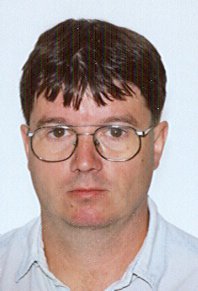László Póti, born in Eger, Hungary, in 1960. Ph.D. from the University of Economic Sciences, Budapest. Research Fellow at the Institute for Strategic and Defence Studies, Budapest.
Magyar Fellow (1 February 2001 – 30 June 2001)
During my five-month stay at NIAS, my research focused on two aspects of Russian foreign policy, its East-Central European and Western European directions in the period 1991-2001. The idea was to identify to what end result has the evolution of the Russian foreign policy come to after a decade of debates, in general, and in the before mentioned two dimension, in particular.
I concluded that, as a result of the debates mainly between the pro-Western and Eurasian schools of thought, a fairly stable synthesis has been worked out that seems to have gained upper hand in official policies and enjoys quite a wide consensus. This approach rejects the two extremes of orienting either on the West, or on the east and perceives Russia to be an autonomous player in international politics that does not rely on ideology but is pragmatic and economy driven. There also seems to be a special Russian vision of world affairs, one may say a Russian theory of international relations, but this does not offer an alternative worldview (as the Soviet theory of international relations did), rather it colours the picture.
The evolution of Russian-Eastern/Central European relations in the nineties has been a process of ‘standardisation’. First, the Russian policy toward Eastern/Central Europe (ECE) is no longer a special part of domestic policy but is now part of foreign policy. Second, ECE has been radically devaluated and it has found its way to the bottom of the list of priorities in Russian foreign policy. Third, in the Russian perspective, the ECE is no longer valued as an autonomous region and is approached indirectly, i.e. in the context of Russian European policy. Fourth, instead of the previous bloc approach, Russian policy now deals with these countries individually or regionally, that is to say differentiation has come to the fore. Fifth, these relations have been de-militarised, and, de-ideologised, as well.
Finally, since the beginning of 2000 under Poetin, there has been a shift in Russian foreign policy towards Europe, and this new development paves the way for more co-operative Russian-European relations in the long run.
